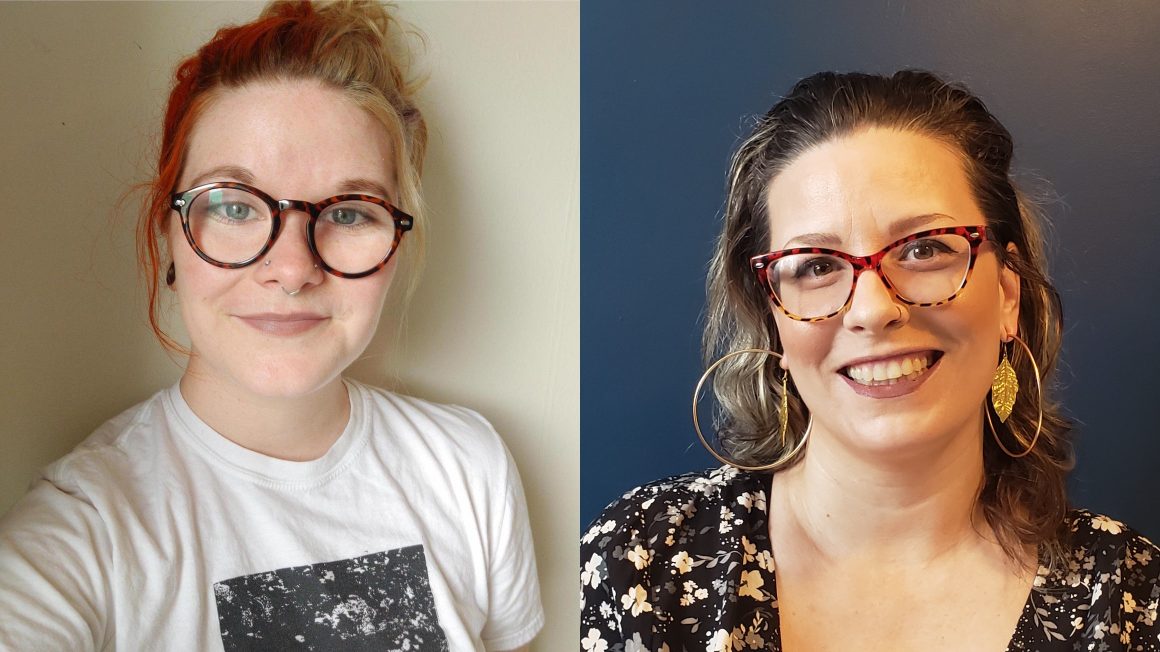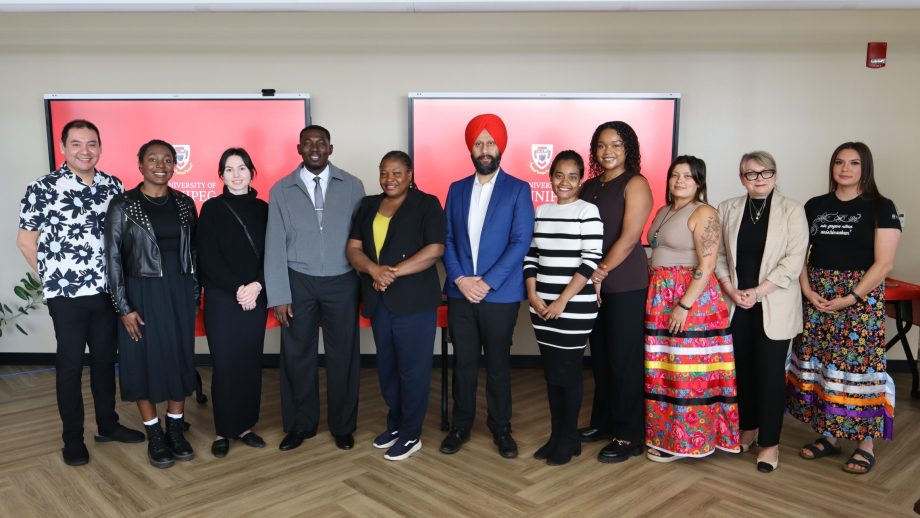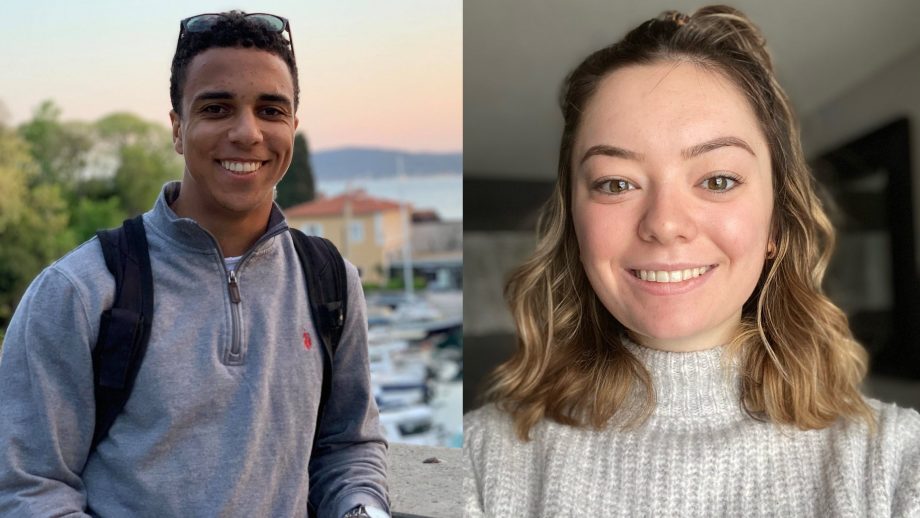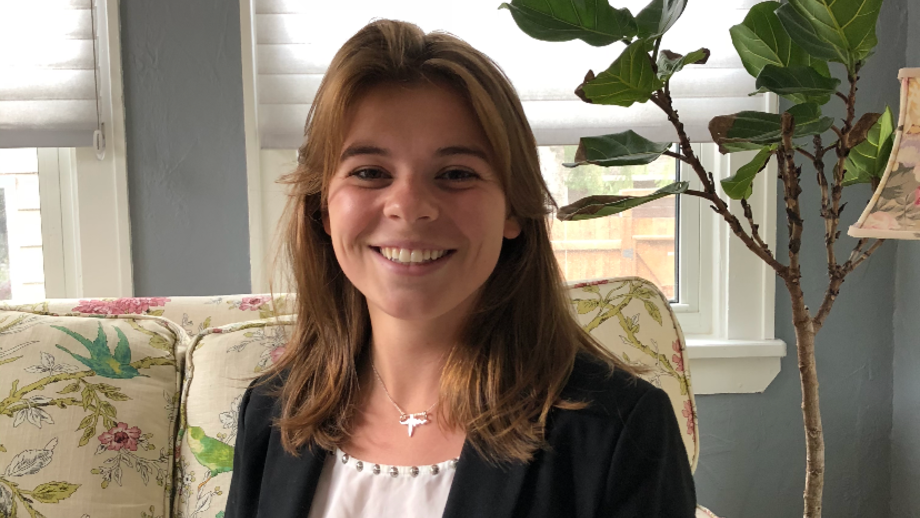Eleven University of Winnipeg Faculty of Arts students from underrepresented and underserved communities were recipients of the new Bursary for Curricular Work-Integrated Learning in Arts this academic year.
Nyala Ali, Experiential Learning and Internship Coordinator with the Faculty of Arts, spearheaded initiative ideas last year in hopes of supporting students who participated in work placements, practicums, and internships.
This past winter, Co-operative Education and Work-Integrated Learning (CEWIL) Canada introduced a new initiative, iHub, the first round of which provided grant-based funding to enable and promote curricular work-integrated learning opportunities at universities during the 2020-21 academic year.
“This initiative is meant to support low-income, working, or otherwise economically marginalized students for whom hands-on professional experience and networking would be especially helpful, but also for whom unpaid internships might not otherwise be an option,” she said. “This type of bursary is really important for students who may be less socially mobile or may be at risk of leaving their studies due to financial reasons.”
With support from Dr. Paul Lawrie, Experiential Learning Director and Associate Dean of Arts, Ali submitted a proposal for $10,000 in funding and received it.
Student Experiences
Andrea Clarke and Jayelyn Rae were two of 11 students to receive the bursaries.
After five years of studies, Clarke is graduating from UWinnipeg this June with a Bachelor of Arts in Psychology.
After learning about the Certificate of Applied Psychology (CiAP) last spring, she changed her degree from a three- to four-year BA and decided to look into getting a practicum.
While Clarke was already well versed in psychological theories and different principles, it was important for her to apply her education in a real-world environment.
In October, Clarke started a practicum with New Directions — For Children, Youth, Adults, and Families virtually in October. Her practicum consisted of 11 bi-weekly meetings with directors and staff.
“I learned a lot about psychology and the different ways that psychology can be applied in a clinical setting and in the community, and the many different ways that I can use my skills and knowledge,” Clarke explained. “I also learned a lot about myself, both personally and professionally, and I think it will help me with my future career goals and life in general.”
Dr. Aynslie Hinds, who worked on getting Clarke’s practicum, made her aware of the bursary in March.
“Finding out on the last day of classes that I was a recipient of the bursary just gave me another boost of confidence as I headed into exams and it made me feel good to know that my hard work has been rewarded,” Clarke explained. “This bursary will help me to be less stressed financially and allow me to pay off some student debt.
Rae arrived at UWinnipeg in 2016 to pursue a Bachelor of Arts in History. After taking a break from studying the last two years, they returned this past fall and took on a practicum with the Buhler Gallery at St. Boniface Hospital from September to April.
“I was able to get hands-on experience curating the Spiritual Healing hallway in the St. Boniface Hospital, which was an amazing experience,” Rae explained. “I was introduced to the ins and outs of what actually goes on behind the scenes in a gallery.”
Leona Herzog, Director and Curator of the Gallery, was Rae’s mentor during the practicum.
Gaining real-world experience to accompany everything they learned inside the classroom was an important focus this academic year.
“Without this hands-on experience it would have been very difficult for me to find a job in the museum sector,” Rae said. “The skills I gained from the practicum allow me to feel comfortable when applying for jobs.”
Rae first heard about the bursary through an email from Dr. Serena Keshavjee, Associate Professor of History of Art. After having to work in a makeshift kitchen office most of the past year, the financial assistance from this bursary allowed them to create a better remote workspace.
“This bursary has allowed me to purchase a proper desk and chair for my studies and my new job,” Rae said. “It will greatly improve my focus and feel more organized while studying from home.”
What’s Next?
Moving forward, Ali is hoping the current experiential and work-integrated learning initiatives can lead to more financial assistance for students undertaking these opportunities.
The success of this year’s bursaries has been inspiring to her, as she’s witnessed many students from all different walks of life benefit from the support.
“We aimed to fund as many students from different backgrounds and situations as we could, because all of these students have different perspectives and lived experiences that are so valuable to their host organizations,” she said. “They’re actually in a position to help find innovative, respectful ways to serve communities like theirs, and in doing so, can offer their host organizations a kind of mutuality in learning.”
Experiential and Work-Integrated Learning at UWinnipeg has aspirations to expand this bursary program initiative to support a larger number of students across multiple faculties.
“As curricular work-experience placements are on the rise, the need for this type of student funding will only become more necessary,” said Ali.





